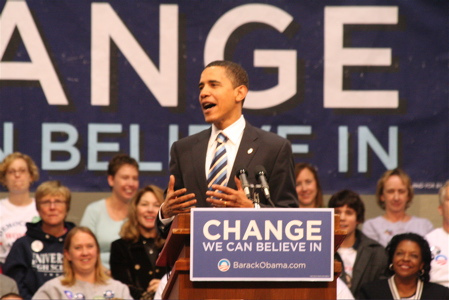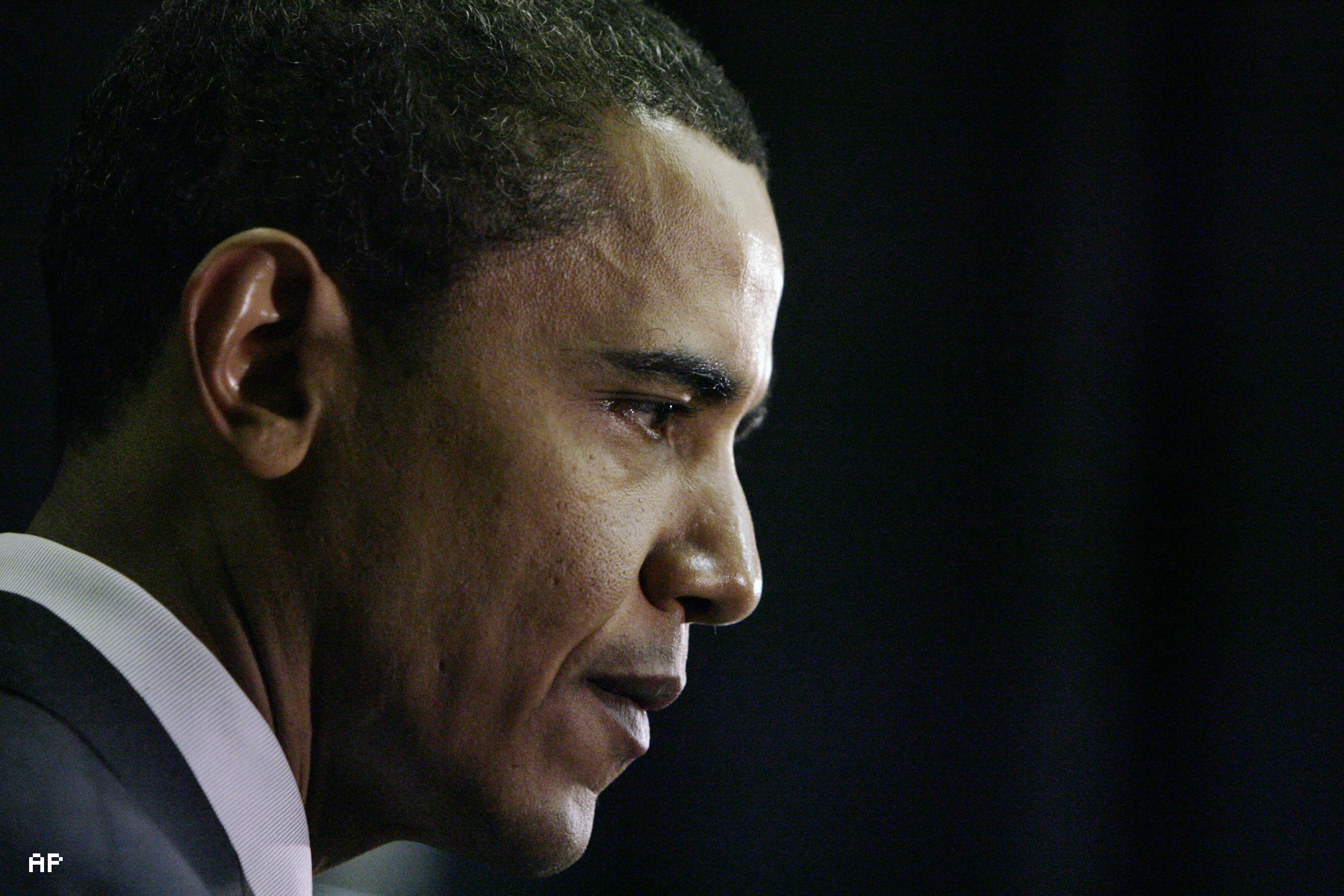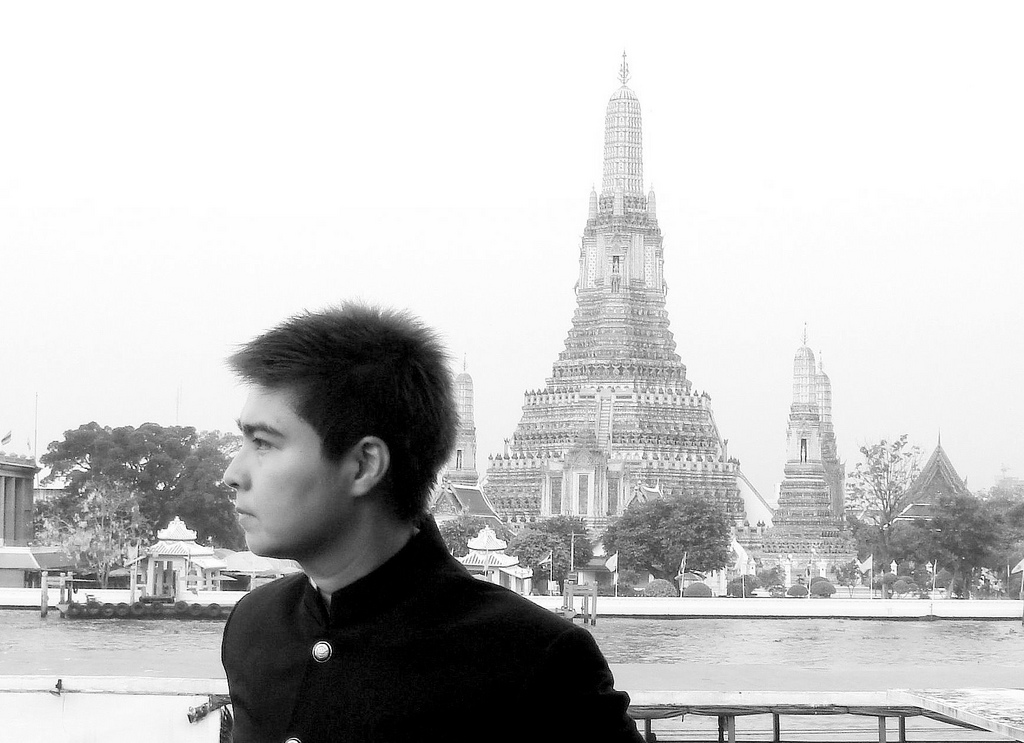(As appeared in Bangkok Post, Friday, November 14, 2008, the first of a two-part series on Obama campaign from a Buddhist perspective)

Although he didn't say it, the real change that Obama was rallying for was the change of the people, by the people and for the people. Photo from www.barackobama.com
The world has just emerged fresh from eagerly following Barack Obama’s historic campaign. Apparently, conventional wisdom believes Obama’s success is derived from his campaign’s key message --- change.
This concept of change is no stranger to Buddhists. And because the Obama’s campaign has superbly provided us with a common reference point, this moment seems most ideal to explore “change” in light of something closer to home, that is, change in light of Buddhism while the Obama experience is still fresh in our mind.
Today’s installment is an inaugural article in a 2-part series on the Buddhist perspective on the Obama campaign. After this week’s discussion on this campaign’s fundamental theme, we would turn the table around and explore the Buddhist values we could see in Obama himself.
Yes, why not? After all, a transformational figure in the political circle is hard to come by anywhere in the world. So, please stay tuned for additional treat next week!
Not Just Any Changes, but Change with a Higher Purpose
Before we discuss Buddhist’s concept of change, let us explore what the Obama camiagn has been advocating. Simply put, Obama portrayed himself as the agent of change.
At first glance, this positioning alone should provide a good momentum for the Obama campaign already, given the economic, social and political mess America got itself in.
Why, then, does it have to be “change we can believe in?” The Buddhist concept of change can provide an explanation.
Buddhist’s Implication of Change
The concept of change in Buddhism is known as the Law of Impermanence. And it is best explained together with the truth about suffering. Let us first look around to see what kind of suffering the world is now facing and we will get the picture.
A quick way to get a grasp on the truth of suffering is to turn on a prime time’s news program. At any hour, there is always a breaking news on crisis: wars, terrors, riots, financial market collapsing or otherwise. Not all sufferings are man-made. Equally devastating are the natural disasters of all imaginable kinds: flood, hurricane, earthquake, wild fire, tsunami, etc..
What those natural disasters and man-made crisis have in common is that they are all about changes, most of them sudden, which in turn bring suffering.
Even if it may not seem to bring immediate, physical suffering, change still has in it the air of uncertainty. This in itself brings anxiety and fear. In other words, at the very least, change brings mental suffering.
Therefore, it would not be an overstatement to say that, sub-consciously at least, we humans are wired to be afraid of changes because it does to bring suffering.
Unless of course it is a change deliberately enacted by ourselves for a higher purpose.
But what is the change that Obama felt that people could believe in? We’ll come back to that later. Let us first look at the type of change that people do not want to be in because this change for the worse is actually the catalyst for the drive towards change for the better.
Change is inevitable, and is one with suffering
In Buddhism, change is more of a rule rather than exception. Even without someone announcing that he would bring change, change would still happen according to Buddhist view. This is because the Law of Impermanence says that all conditioned things will eventually ceased to exist.
To be specific, Lord Buddha once said,
“…Whatever is impermanent (anatta) is subject to change (anicca.)
Whatever is subject to change is subject to suffering (dukkha)…”
Rather than focusing on what changes and why, Buddhism focuses on how we can best deal with changes that are, by nature, inevitable. Dealing with aging, sickness, death, and parting with loved ones are clear examples of the inevitable.
In fact, the core essence of Buddhist Enlightenment is nothing more than the true understanding of the nature of change. Why is that?
It is because change goes hand in hand with suffering. The understanding of the cause of suffering means we could refrain from causing any more suffering to ourselves.
For novice mindfulness practitioner, this means the end of suffering in the now. For those who have fully Enlightened, this understanding of the nature of change would liberate them of suffering forever.
The Real Meaning behind Obama's Call for Change
Coming back to the “change” Obama talked about in his campaign, we will see that it parallels with the Buddhist idea of how one can liberate oneself out of suffering. If we pay close attention to Obama’s various speeches, we will see that the real change he is aiming for is not merely a change of policies.
Obama’s plan of policy changes is at best an instrument to get things done. Even the new policy itself is subject to change, too, as Obama made clear he wants to hear the feedback from the public so that he could always improvise his policy to make it serves the need of the people better.
This “hearing from the public” is the key to Obama’s message of change, the change that he said the American people could believe in. It is the change Obama asked the public to make of themselves.
Time and time again, Obama was asking for pubic co-operation and sacrifice. Basically he asked for an end to the blaming game, negative emotions and aggressive gestures that came with partisanship. Obama himself rose above that and he inspired the public to follow suits. “There is no liberal America nor conservative America, black America or white America, but only the United States of America.”
Moreover, Obama’s call for change is not just ideological. Obama presented a way to make it tangible by making an urgent call for social service and volunteerism in every sector.
In other words, the real change that Obama was rallying for was the change of the people, by the people and for the people.
It is the change that Obama knows people can believe in because it is a call for people to believe in themselves!
"..I'm asking you to believe. Not just in my ability to bring about real change in Washington....I am asking you to believe in yours..." (source: www.barackobama.com)
One Voice
This is why the key essence of Obama’s call for change is similar to that of Buddhism measure to achieve the end of suffering. Like Obama’s vision, Buddhist’s change has to first start from an individual's faith within that he/she could bring about the change him/herself.
Moreover, Buddhism calls for selflessness and life-long service to others, with the aim of helping others out of suffering. Mahayana Buddhism in particular believes that it is only by devoting ourselves to help others that we would be liberated ourselves. Theravada Buddhism believes that it is only by striving to change ourselves to a higher moral plane that we could go on to transform the lives of others for the better. But, if we read between the lines, we will realize that these two approaches are in fact the same.
The same goes with Obama’s concept of change and that of Buddhism’s. They are both about changes that are founded upon powerful faith in humanity.
And this, dear readers, is the change we should believe in. Because, you guessed it, Yes, We Can!











